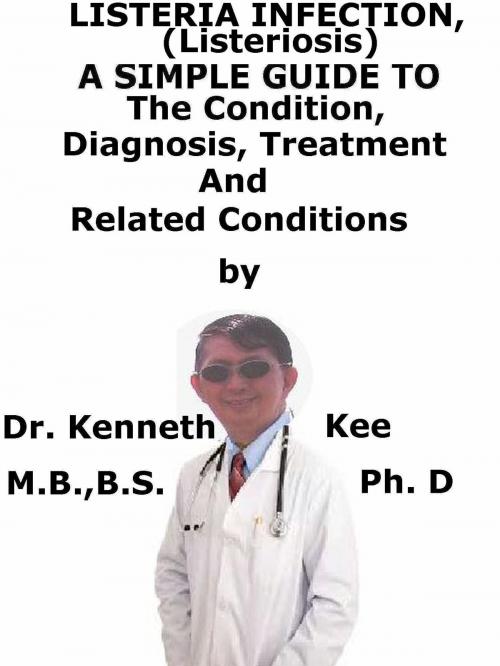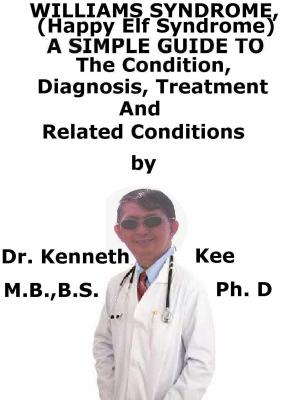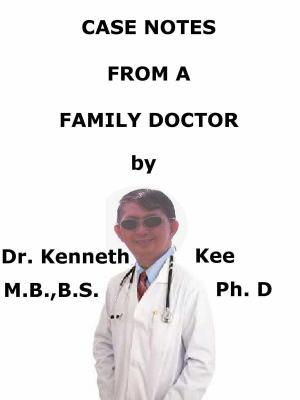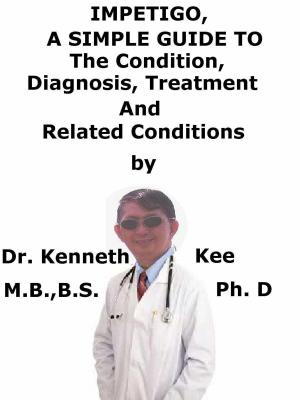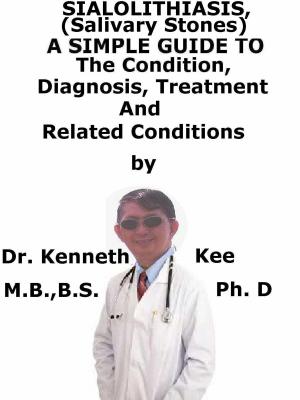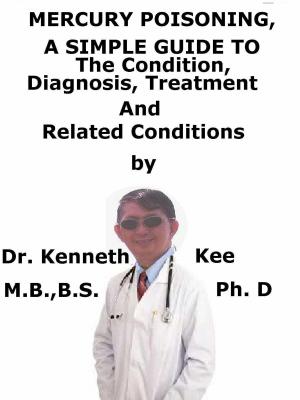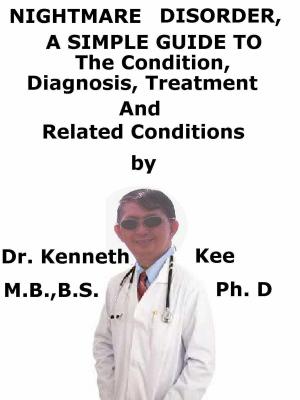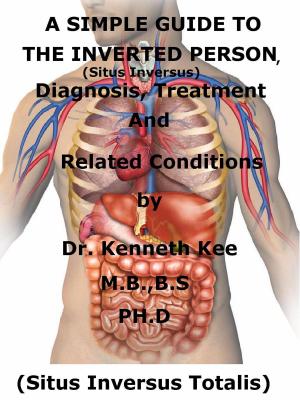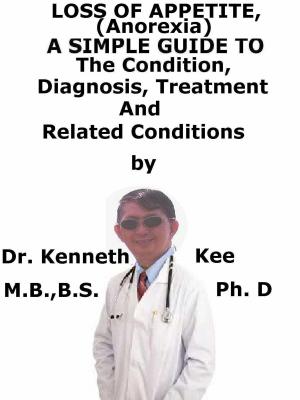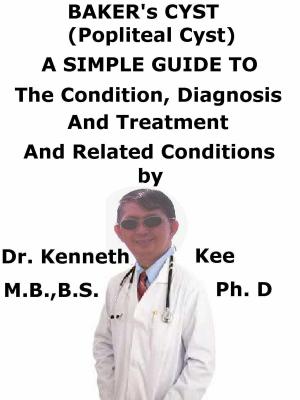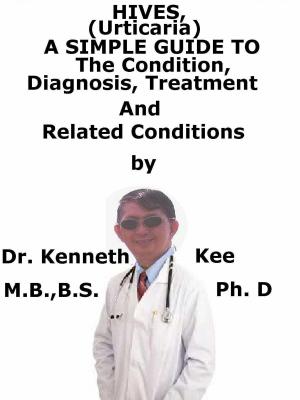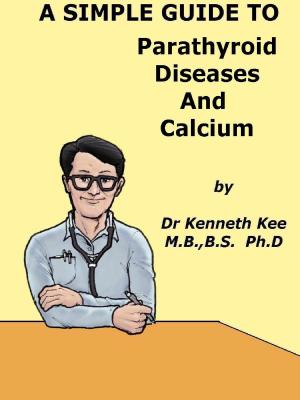Listeria Infection, (Listeriosis) A Simple Guide To The Condition, Diagnosis, Treatment And Related Conditions
Nonfiction, Health & Well Being, Medical, Ailments & Diseases, Infectious Diseases, General| Author: | Kenneth Kee | ISBN: | 9781370749140 |
| Publisher: | Kenneth Kee | Publication: | March 26, 2018 |
| Imprint: | Smashwords Edition | Language: | English |
| Author: | Kenneth Kee |
| ISBN: | 9781370749140 |
| Publisher: | Kenneth Kee |
| Publication: | March 26, 2018 |
| Imprint: | Smashwords Edition |
| Language: | English |
This book describes Listeria Infection, Diagnosis and Treatment and Related Diseases
Listeria infection is a food borne bacterial illness that can be very dangerous for pregnant women and people with reduced immune systems.
Listeria infection is most often contracted by eating improperly processed deli meats, raw contaminated fruits and un-pasteurized milk products.
Healthy people seldom become ill from listeria infection, but the disease can be fatal to unborn babies and newborns.
People who have weaker immune systems also are at greater risk of life-threatening complications.
Prompt antibiotic treatment can help stop the effects of listeria infection.
Listeria bacteria can live in refrigerators and even freezing.
That is why people who are at higher risk of serious infections should avoid eating the types of food most prone to contain listeria bacteria.
Causes
Listeria bacteria can be present in soil, water and animal feces.
Humans normally are infected by consuming:
- Raw fruits and vegetables that have been contaminated from the soil or from contaminated manure used as fertilizer
- Contaminated animal meat
- Un-pasteurized milk or foods made with un-pasteurized milk
- Certain processed foods such as soft cheeses, hot dogs and deli meats that have been contaminated after processing
- Unborn babies can contract a listeria infection from the mother through the placenta.
Listeriosis is a bacterial infection caused by Listeria monocytogenes.
The bacteria are found in soil, water, effluents, a large variety of foods, and the feces of humans and animals.
Infection with listeriosis happens primarily through food borne transmission.
Epidemics have been reported in link with dairy products, particularly soft cheeses made from raw (un-pasteurized) milk, processed and ready-to-eat meats, raw mushrooms, fresh produce such as fruits and vegetables and seafood.
The incubation period of Listeria ranges from 3 to 70 days (normally 1-4 weeks).
Risk factors
The population groups at higher risk of infection are pregnant women, the elderly or persons with a weakened immune system, e.g. people in immuno-compromised status due to AIDS, leukemia, active malignancy, solid organ transplants, steroids and immunosuppressive therapy.
Pregnant women and people who have weak immune systems are at highest risk of contracting a listeria infection.
Symptoms
If the patient has a listeria infection, he or she may experience: - Fever
- Muscle aches
- Nausea
- Diarrhea
Symptoms may begin a few days after the person has eaten contaminated food, but it may take as long as 30 days or more before the first signs and symptoms of infection begin.
If the listeria infection spreads to the nervous system, signs and symptoms may be: - Headache
- Stiff neck
- Confusion or changes in alertness
- Loss of balance
- Convulsions
Diagnosis:
Doctors in primary care should refer cases that are likely to have listeriosis based on the relevant food and medical history, to hospital for further evaluation and treatment if necessary.
Listeriosis is diagnosed by blood cultures (at least 2 sets prior to antibiotic initiation) or cultures of relevant medical samples including CSF.
Treatment:
Listeriosis is treatable with antibiotics if diagnosed early.
When infection occurs during pregnancy, prompt usage of antibiotics can often prevent infection of the fetus or newborn.
Patients from high risk groups presenting with medical signs of listeriosis should be treated with antibiotics immediately after proper cultures are taken, while waiting for laboratory confirmation.
The treatment of choice is normally IV ampicillin.
Cephalosporin is not advised in the treatment of listeriosis.
TABLE OF CONTENT
Introduction
Chapter 1 Listeria Infection
Chapter 2 Causes
Chapter 3 Symptoms
Chapter 4 Diagnosis
Chapter 5 Treatment
Chapter 6 Prognosis
Chapter 7 Gastroenteritis
Chapter 8 Typhoid Infection
Epilogue
This book describes Listeria Infection, Diagnosis and Treatment and Related Diseases
Listeria infection is a food borne bacterial illness that can be very dangerous for pregnant women and people with reduced immune systems.
Listeria infection is most often contracted by eating improperly processed deli meats, raw contaminated fruits and un-pasteurized milk products.
Healthy people seldom become ill from listeria infection, but the disease can be fatal to unborn babies and newborns.
People who have weaker immune systems also are at greater risk of life-threatening complications.
Prompt antibiotic treatment can help stop the effects of listeria infection.
Listeria bacteria can live in refrigerators and even freezing.
That is why people who are at higher risk of serious infections should avoid eating the types of food most prone to contain listeria bacteria.
Causes
Listeria bacteria can be present in soil, water and animal feces.
Humans normally are infected by consuming:
- Raw fruits and vegetables that have been contaminated from the soil or from contaminated manure used as fertilizer
- Contaminated animal meat
- Un-pasteurized milk or foods made with un-pasteurized milk
- Certain processed foods such as soft cheeses, hot dogs and deli meats that have been contaminated after processing
- Unborn babies can contract a listeria infection from the mother through the placenta.
Listeriosis is a bacterial infection caused by Listeria monocytogenes.
The bacteria are found in soil, water, effluents, a large variety of foods, and the feces of humans and animals.
Infection with listeriosis happens primarily through food borne transmission.
Epidemics have been reported in link with dairy products, particularly soft cheeses made from raw (un-pasteurized) milk, processed and ready-to-eat meats, raw mushrooms, fresh produce such as fruits and vegetables and seafood.
The incubation period of Listeria ranges from 3 to 70 days (normally 1-4 weeks).
Risk factors
The population groups at higher risk of infection are pregnant women, the elderly or persons with a weakened immune system, e.g. people in immuno-compromised status due to AIDS, leukemia, active malignancy, solid organ transplants, steroids and immunosuppressive therapy.
Pregnant women and people who have weak immune systems are at highest risk of contracting a listeria infection.
Symptoms
If the patient has a listeria infection, he or she may experience: - Fever
- Muscle aches
- Nausea
- Diarrhea
Symptoms may begin a few days after the person has eaten contaminated food, but it may take as long as 30 days or more before the first signs and symptoms of infection begin.
If the listeria infection spreads to the nervous system, signs and symptoms may be: - Headache
- Stiff neck
- Confusion or changes in alertness
- Loss of balance
- Convulsions
Diagnosis:
Doctors in primary care should refer cases that are likely to have listeriosis based on the relevant food and medical history, to hospital for further evaluation and treatment if necessary.
Listeriosis is diagnosed by blood cultures (at least 2 sets prior to antibiotic initiation) or cultures of relevant medical samples including CSF.
Treatment:
Listeriosis is treatable with antibiotics if diagnosed early.
When infection occurs during pregnancy, prompt usage of antibiotics can often prevent infection of the fetus or newborn.
Patients from high risk groups presenting with medical signs of listeriosis should be treated with antibiotics immediately after proper cultures are taken, while waiting for laboratory confirmation.
The treatment of choice is normally IV ampicillin.
Cephalosporin is not advised in the treatment of listeriosis.
TABLE OF CONTENT
Introduction
Chapter 1 Listeria Infection
Chapter 2 Causes
Chapter 3 Symptoms
Chapter 4 Diagnosis
Chapter 5 Treatment
Chapter 6 Prognosis
Chapter 7 Gastroenteritis
Chapter 8 Typhoid Infection
Epilogue
